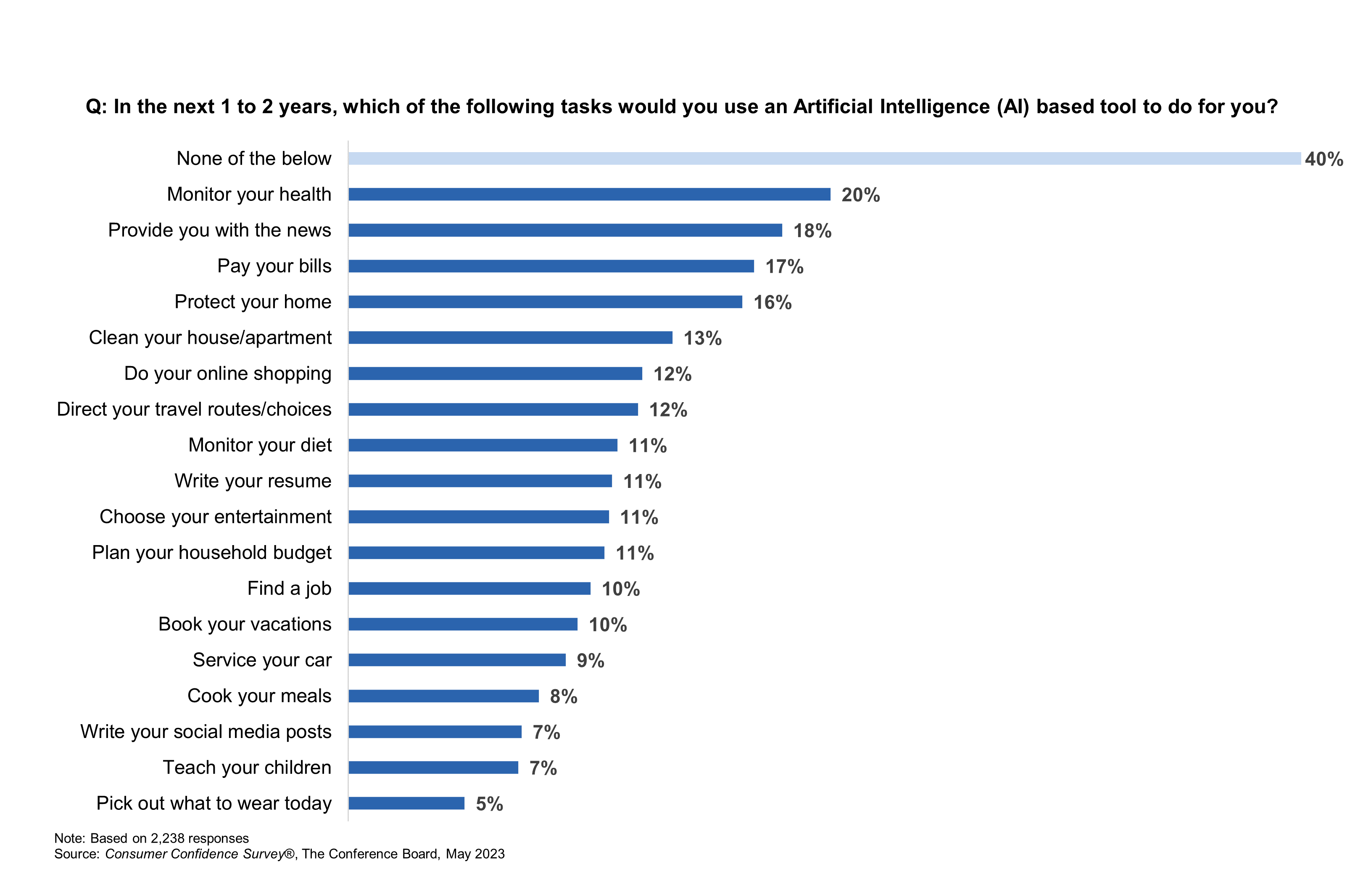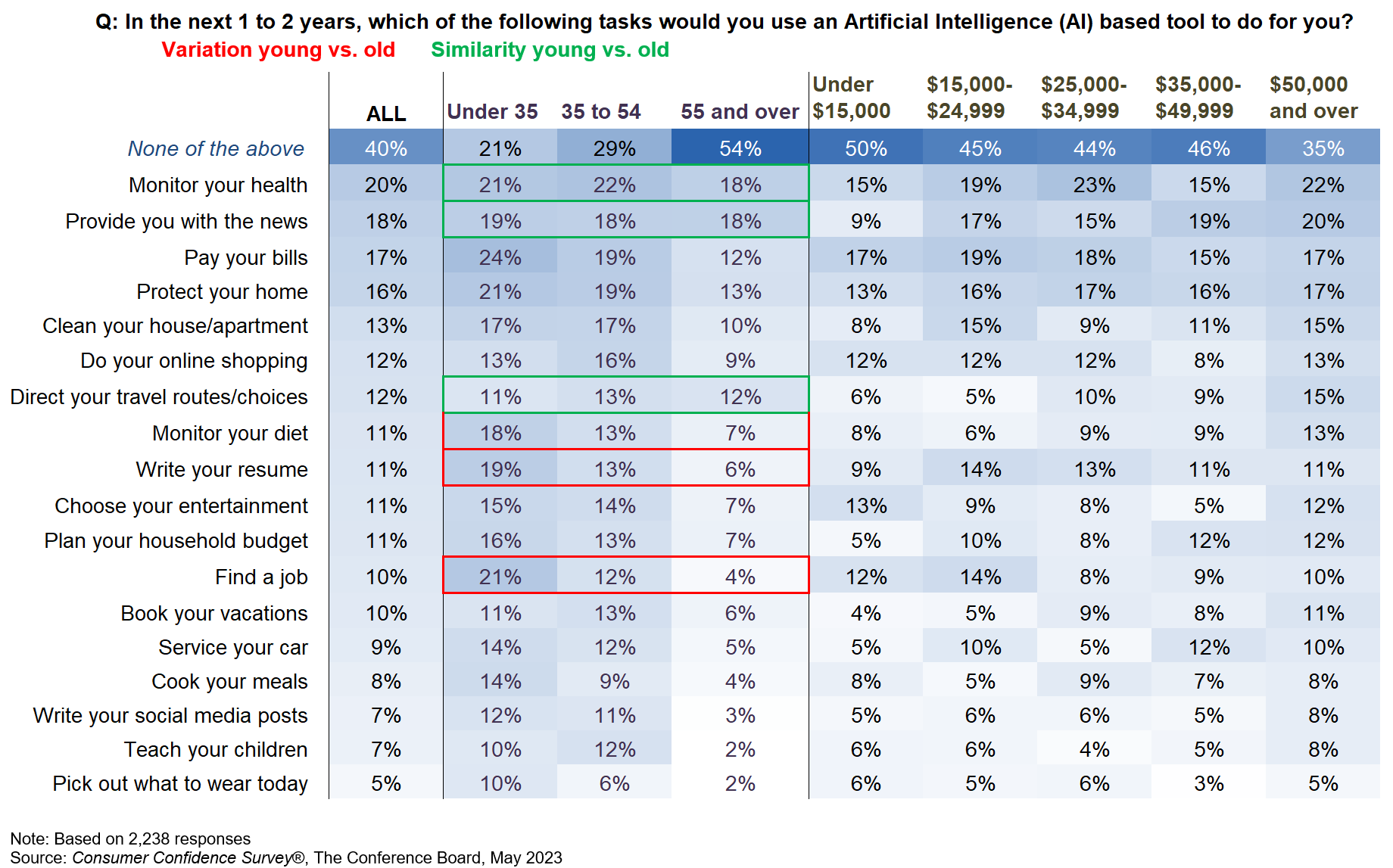
June 16, 2023 | Article
Artificial intelligence is capturing the imagination of the population and is a topic of debate. To what extent do we embrace it? To what extent can it make our ordinary lives more productive?
Insight for What’s Ahead: Acceptance is growing slowly:while many individuals, especially those aged 55 and older, remain skeptical about its use, younger, more affluent consumers are beginning to warm to the idea of allowing AI-empowered tools to manage the repetitive, ordinary tasks of daily life. Services can be created to address this desire but also to capitalize on the time this frees up for work or leisure pursuits.

In its May 2023 Consumer Confidence Survey®, The Conference Board asked more than 2,000 consumers from across the US to share where they’d let AI play a role in their daily lives—and which tasks remain off-limits. Trust in AI to monitor health, manage the household budget, and protect the home is reaching a viable level, with roughly 1 in 5 consumers ready to embrace each of those use cases. Replacing personal choices is less appealing: for example, only 1 in 20 consumers will happily allow AI to choose their outfit for the day.
There is also a large cadre of unbelievers, with 40 percent of respondents saying they would not use AI to manage a single one of the 18 daily tasks included in the survey. This reluctance was especially pronounced among older consumers, with 54 percent of the 55+ age group choosing “none of the above” compared to just 21 percent among under-35s.
A presupposition might be that age and income directly dictate the attitudes to AI adoption. Age and income do play a role in shaping these, as tasks such as “find a job,” “write a résumé,” and “monitor your diet” are more appealing to younger cohorts, while “monitor your health” and “provide you with the news” are equally appealing.

Companies should leverage this willingness as they develop products and services for different age groups. Irrespective of the target group, one commonality remains: if AI is leveraged to shape the offering, transparency is critical in maintaining trust.
To get complimentary access to this publication click "Read more" to sign in or create an account.
